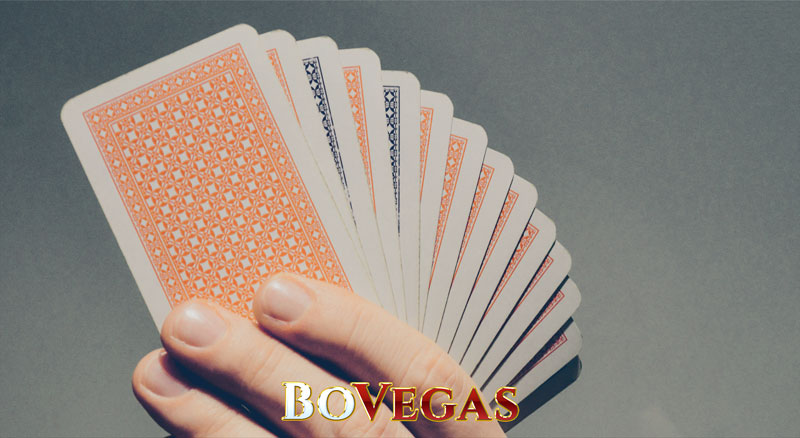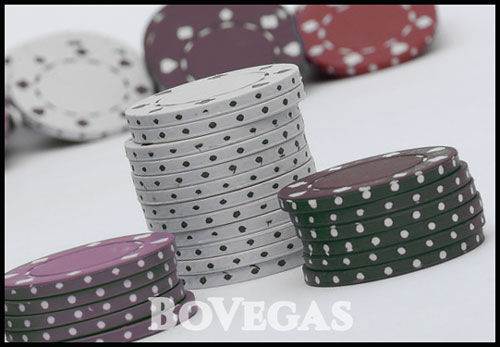



When you make a pre-flop raise, you’re telling your opponents that your hand is quite strong. So, what are they telling you when one of them decides to make a re-raise before the flop? That’s the question we’ll help you answer in this article.
Why is facing a preflop re-raise is different from facing a pre-flop raise? It’s because your opponent is sending you a very clear message that their hand is quite strong. The question then becomes: should you believe them? Before we get to the answer, let’s recall why we raised in the first place.
When we raise, increasing the pot value isn’t the only goal. We do it to accomplish a few objectives, including establishing that we have a strong, playable hand that is capable of getting opponents to fold their marginal hands, and of getting other opponents to define the range of the kind of hands that they are playing. When we get re-raised by a player behind us, we have clearly accomplished at least part of our goal; because if our raise says we like our hand, our opponent’s re-raise says that they really like their hand.

Let’s say we’re in the early stages of a tournament. The blinds are 25-50, and we have $2000 in chips. We raised to 150 from middle position with two Eights and got re-raised to 600 by the button. What do we do? First, let’s look at our position compared to that of our opponent. Since he’s on the button, he’ll get to interact after us throughout the hand which is a clear advantage for him. However, on the flip side, since he’s on the button, we also know that he can be raising us with a wide variety of hands here — anything from a bigger pocket pair to something like Ace-King, Ace-Queen, or even smaller suited connectors like Nine, Ten or a complete bluff.
How strong do we think our hand is against our opponent’s probable range? Is it strong enough to call with? Or do we think we’re actually ahead of our opponent? If we’re ahead, is our hand strong enough to re-raise with all-in?
Let’s look at what we know of our opponent’s style. Is he loose and playing a lot of hands? Is he tight and only playing premium cards? Has he been bullying the table, or has he been passive? Is it too early to make any solid reading of his style at all?
Finally, let’s look at our stack sizes in this pot. With just $2000 and chips at the start of the hand, calling our opponent’s re-raise would leave us both with only 1400 in our stack, and looking at a pot that has 1275 in it, if we were to see the flop. That constitutes our opponent’s bet of 600 plus our bet of 600, plus 25 from the small blind and 50 from the big blind.1400 is not a big enough return to call the extra 450 on top of the 150 that we initially raised. If we believe that our hand is not the best, and we need to draw into a set in order to win – it’s a long shot. It’s also not enough to call if we don’t think that we can bluff and win after the flop; which is hard to do from out of position, when our stack is only about as big as what’s already in the pot.
Can we really afford to make a bet of ½ or ⅔ of the pot after the flop, or will we just have to move all in, because we’re already committed to the pot? Can we give this pot up, even if we miss the flop? Considering our position (and the fact that our hand is fine, but not great) it seems apparent that folding is the wise play here. Sure, we’re giving up $150! But that’s a small price to pay compared to the problem of putting ourselves in a situation where we could lose our entire stack, and end up crashing out of the tournament!
One of the reasons we raised in the first place was to gain some information; and you should never forget that! We got what we wanted when our opponent re-raised, despite not having any clear indication that we’re actually ahead in the hand at this point. We have to believe that our hand isn’t strong enough to gamble with at this point in the tournament and that therefore, we can just fold at our leisure.

In terms of odds and chances, blackjack is known for being a popular “player-friendly” casino card game. Indeed, if you play it properly, you might even get a small edge against the house! This is a mathematically proven fact that has been known for many decades, ever since the release of the fundamental research found […]
As part of the ever more flexible range of gambling entertainment options available to us, the best online casinos provide us all with the opportunity to try any game for free. Sometimes, both newcomers and seasoned players need to try free mode, so they can explore the playing process in-depth; or even just to have […]
No matter how much luck and motivation you may possess, it’s just not enough if you want to be a successful gambler. Knowledge is not trivial. In gambling, knowledge is by far the most powerful tool you can wield. Just for the record, a profound knowledge of gambling’s rich history does not equate to a […]
Are you done packing? We know it may be a bit soon, but we’re just too excited about this event, and it’s tough to wait. So we don’t know about you, but we’ve got our pass, tickets, swimsuits… wait a minute, it’s in New York, and it’s on November 27th-28th, so apparently, we’ll have to […]
If you love gambling and have been to a land-based casino at least once, you may have thought about becoming a dealer. Playing the same game but from the opposite side, while communicating with other players, sounds like a dream job, right? A dealer is a straightforward job, and you will be the heart and […]
On Monday September 14, MGM announced that it plans to open its first smoke-free casino at the end of September, when Park MGM will finally reopen its venues to players and tourists. The resort comprises around 2,990 rooms and various restaurants, and it’s set to be reopened on September 30. The venue has been closed […]
Online gambling has undoubtedly taken a place of true supremacy over the casino industry during the pandemic. And the reason for that is quite clear: online casinos are more accessible, and you can always count on some encouragement from the casino administration to help you boost your game. However, this digital revolution has only been […]
The large selection of online gambling sites out there can make players somewhat puzzled, and give them a feeling of uncertainty about making the right choice of casino. Each online gambling venue offers its own conditions, games, and various bonuses, of course; but the most important thing is the reliability of the casino and the […]